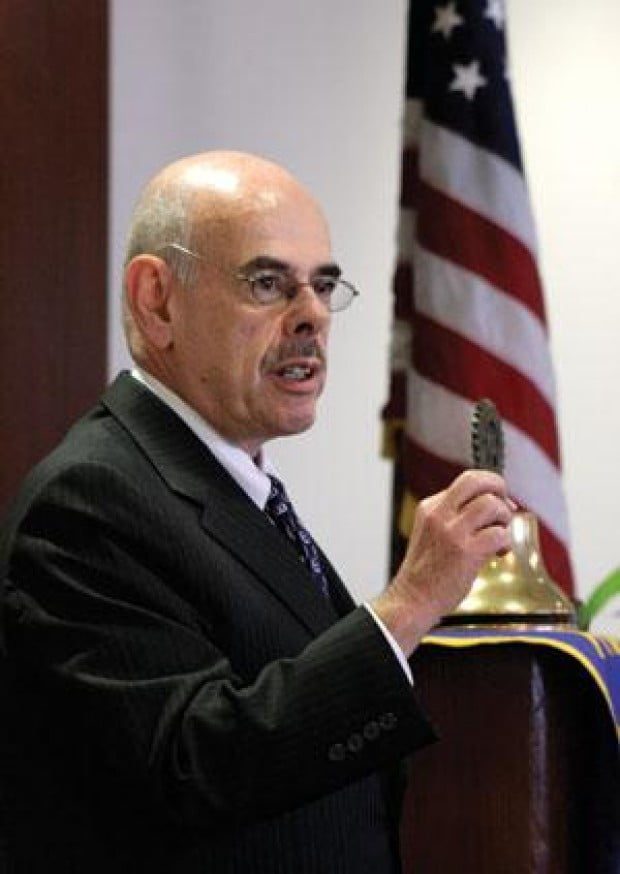During a forum on gun violence and mental health in response to last month’s shooting by John Zawahri that left five dead and several injured, Rep. Henry A. Waxman, D-Santa Monica, announced Monday he would introduce the Gun Violence and Prevention Act of 2013 to Congress.
The bill would address gun safety, mental health and gun violence research.
Waxman also released a report that found a loophole in gun laws, which allowed Zawahri to purchase different parts of an assault rifle off the Internet, which he was then able to assemble himself. The final product was illegal to own in California.
On June 7, gunman Zawahri, 23, shot his brother and father, Christopher and Samir, and made his way to Santa Monica College where he killed Marcela Franco, her father Carlos Franco and Margarita Gomez before being shot by law enforcement from the Santa Monica and Santa Monica College police departments.
The shooting re-ignited statewide efforts to focus on tighter gun laws, mental health issues and treatment. The panelists at the forum included Pamela Hyde, the administrator of the federal Substance Abuse and Mental Health Awareness Administration; Santa Monica Police Chief Jacqueline Seabrooks; Nancy Greenstein, chair of the Board of Trustees of Santa Monica College; and Suzanne Verge of the Los Angeles Chapter of the Brady Campaign to Prevent Gun Violence. The panel was joined by Mayor Pam O’Connor, State Sen. Ted W. Lieu, D-Santa Monica, and L.A. County Supervisor Zev Yaroslavsky, Third District.
Waxman said he would work with leaders from both parties to pass the bill into law.
“[The] bill will prohibit the sales of certain homemade gun kits and parts, but it will also target research on serious mental illness, improve access to mental services for all and reinforce existing government agencies to carry out public health research on gun violence,” Waxman said.
California has some of the strictest gun laws in the nation, but the panelists agreed the loophole needed to be addressed.
“In California and around the country what our staff found is there is a huge loophole if you don’t buy an assault weapon, you can construct your own and build your own and buy the parts over the Internet either from a seller here or somewhere else in the country, [and] circumvent federal serial numbers for firearms, circumvent the California law for having these kinds of weapons,” Waxman said.
Verge said the state keeps passing new laws because the gun industry is constantly coming up with ways to circumvent them.
All the panelists agreed mental health issues needed to be addressed in youth and adolescent adults to prevent situations like the Santa Monica shooting to reoccur.
“For those who have lost a loved one, you just don’t get over it,” Verge said. “There is mental illness everywhere in this world but what makes our … situation lethal is the easy access to guns. So what can we do? Education, prevention, legislation, litigation — all of those things will help,”
Lieu said Zawahri revealed a “road map” to anyone in the United States on how to bypass state background checks.
Seabrooks said in the five weeks since the tragedy unfolded, law enforcement found out the shooter was “extremely troubled and seemingly socially isolated” and had an “obsessive fascination” with firearms.
In response to the Virginia Tech shootings that killed 32, Greenstein, who is also director of Police Community Services at the UCLA Police Department, said schools across the country realized they needed to be more prepared for shooting situations. She said a few weeks before the SMC shooting, the library staff received active shooting training, which includes preparation for sheltering in place, evacuation and taking the offensive when all else fails.
O’Connor said part of the recovery process is continuing working with federal and state elected officials on a wide range of violence prevention measures.
Lilita Dzirkals, who has lived in the Sunset Park area since 1962, attended the forum because she said she lives in the neighborhood where the college is located.
“I wanted to hear from the authorities involved in either implementing or devising the policies,” she said.
Waxman said there needs to be stronger laws to make sure people can’t get around them.
“That needs to be fixed,” he said. “But we also need to look at this from a mental health and community and school safety point of view.”
This story originally appeared in the Santa Monica Daily Press.

